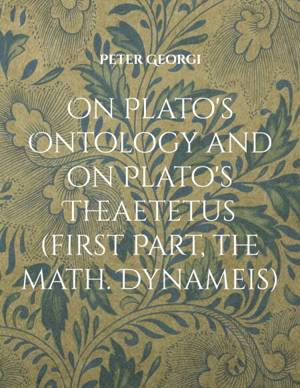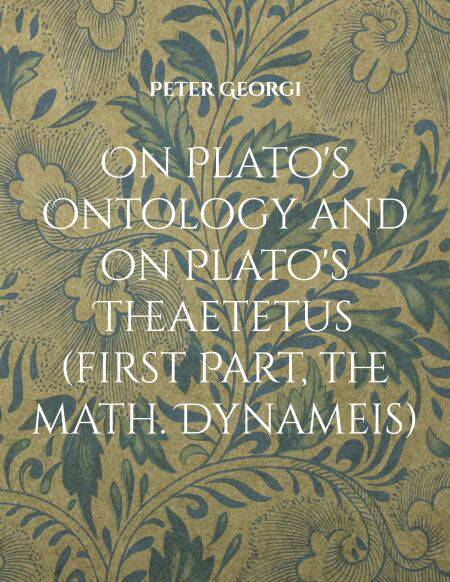
- Afhalen na 1 uur in een winkel met voorraad
- Gratis thuislevering in België vanaf € 30
- Ruim aanbod met 7 miljoen producten
- Afhalen na 1 uur in een winkel met voorraad
- Gratis thuislevering in België vanaf € 30
- Ruim aanbod met 7 miljoen producten
Zoeken
On Plato's Ontology and on Plato's Theaetetus (first Part, the math. Dynameis) E-BOOK
Peter Georgi
E-book | Engels
€ 9,99
+ 9 punten
Omschrijving
The Ontology part of the book is shown first in the title because of its more general, weightier meaning; but it has emerged from the Theaetetus part and is thus found after it. Both parts of the book can be read largely independently of each other.
On the Theaetetus part: The dialogue Theaetetus is dedicated to the question: Knowledge - what is it actually? In the dialogue, it is problematized how the concept of something at all, so also that of knowledge, can be determined. The 'famous' dynamis passage plays an essential role in this. To the passage substantial new issues are shown. In addition, there is a new perspective on the attempts in the initial dialogue part to determine what knowledge is.
On the Ontology part: Here, starting from the dialogue Phaedo, a model of Plato's ontology is developed with provided means of mathematical logic. The model, in particular his version of concept, enables (to the author's knowledge) a partially new understanding of Plato's so-called theory of ideas.
On the Theaetetus part: The dialogue Theaetetus is dedicated to the question: Knowledge - what is it actually? In the dialogue, it is problematized how the concept of something at all, so also that of knowledge, can be determined. The 'famous' dynamis passage plays an essential role in this. To the passage substantial new issues are shown. In addition, there is a new perspective on the attempts in the initial dialogue part to determine what knowledge is.
On the Ontology part: Here, starting from the dialogue Phaedo, a model of Plato's ontology is developed with provided means of mathematical logic. The model, in particular his version of concept, enables (to the author's knowledge) a partially new understanding of Plato's so-called theory of ideas.
Specificaties
Betrokkenen
- Auteur(s):
- Uitgeverij:
Inhoud
- Aantal bladzijden:
- 148
- Taal:
- Engels
Eigenschappen
- Productcode (EAN):
- 9783769390834
- Verschijningsdatum:
- 3/12/2024
- Uitvoering:
- E-book
- Beveiligd met:
- Digital watermarking
- Formaat:
- ePub

Alleen bij Standaard Boekhandel
+ 9 punten op je klantenkaart van Standaard Boekhandel
Beoordelingen
We publiceren alleen reviews die voldoen aan de voorwaarden voor reviews. Bekijk onze voorwaarden voor reviews.








